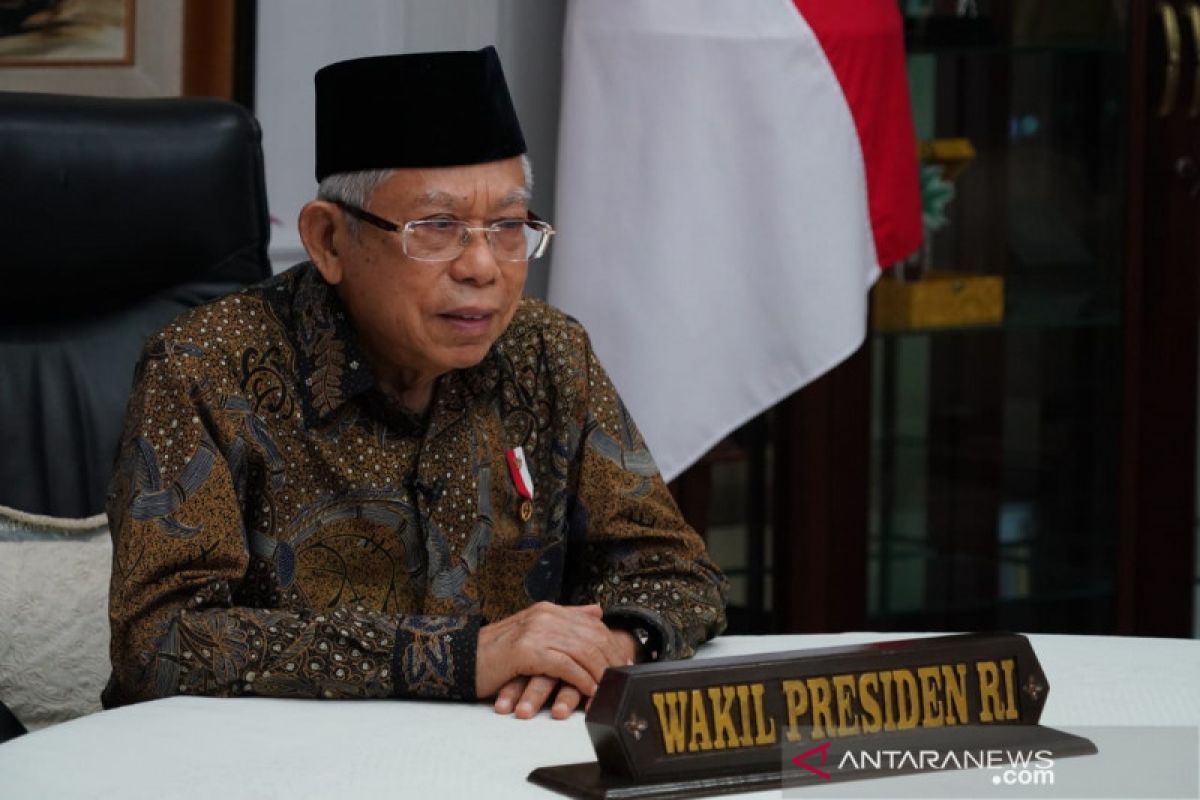The sharia economy is believed to enable the nation implement the recovery of its economy battered by the COVID-pademic, toward a just, sustainable, and green economy.
To develop the sharia economy at its full potential, the government in 2020, issued a presidential decree on the National Committee for Sharia Economy and Finance (KNEKS).
The Indonesian government, in fact, has mobilized innovative financing instruments, such as the issuance of Green Sukuk since 2018 to fund climate change action and support targets of the Sustainable Development Goals (SDGs).
The government has also set up the Environmental Fund Public Service Agency (BPDLH) to manage environmental financial resources and facilitate the development of trade and carbon pricing, according to Finance Minister Sri Mulyani Indrawati.
Indonesia is currently preparing a regulation on carbon pricing to serve as a guideline in formulating domestic policies and an institutional framework for setting carbon prices.
The minister remarked that transitioning to the green economy will have implications for financial stability and inclusion, so it is necessary to prioritize green financing instruments in the financial system.
Moreover, financial institutions should implement strong risk management supported by comprehensive information to assess climate-related risks.
All the hard works have paid off as the Indonesian Finance Ministry in April this year received the Climate Bonds Awards 2021 from the Climate Bond Initiative (CBI), which has deemed it one of the worlds leading government agencies encouraging green finance in the past year.
Related news: Finance Ministry wins Climate Bonds Awards 2021
"This is public recognition of all organizations' and government agencies' success in directing capital, shifting towards achieving low carbon solutions, and the larger transition towards zero-clean," the Finance Ministry said in an official statement on April 27.
Climate Bonds Initiative CEO Sean Kidney lauded the Indonesian government for winning the award for the largest (issuer) of green sukuk (sharia compliant bonds) in the world last year.
The Climate Bonds Awards were bestowed on 23 agencies this year in recognition of their leadership, best practices, and innovation in green and sustainable finance. Green finance covers green bonds, loans, sukuk (sharia bonds), and significant market development in climate-based investment.
With the Climate Bonds Awards, Indonesian sukuk have received 12 international awards since they were first issued in 2018. The award is also the 42nd international award for state sharia bonds.
In addition, the government has also applied the principle of justice, considered the main value of a sharia-based Islamic economy, in its economic recovery efforts amid the COVID-19 pandemic that have mostly affected the poor.
"We have implemented Islamic values while designing economic recovery policies," Mulyani remarked while addressing the National Seminar on Sharia Economics and Finance recently.
The government is striving to build a more inclusive and just Indonesian economy by according priority to vulnerable groups in the fields of education, economy, and health.
Moreover, the Joko Widodo administration supports children from underprivileged families by offering scholarships from elementary, junior, and senior high schools, to colleges under the Smart Indonesia Card Program.
The government additionally provides support to people, who lost their jobs, through the Pre-Employment Card Program that aligns with the aspect of justice in sharia economic values, Indrawati remarked.
Related news: Number of Smart Indonesia Card recipients increases significantly
Furthermore, the government offers support to vulnerable people in the health sector by paying for health insurance, so that they can avail various basic services for free.
"Those are the dimensions of sharia which, in my opinion, are very important for us to continue and to showcase in various roles for supporting and strengthening the Indonesian economy to recover from the COVID-19 pandemic," the minister emphasized.
Meanwhile, according to Vice President Ma'ruf Amin, Indonesia needs to apply aggressive strategies to drive Islamic-based economic and financial development, as the nation is eyeing to be the world's biggest producer of halal products by 2024.
The government is strongly committed to developing sharia economy, focusing on developing halal industry, sharia financial industry, sharia social fund, and developing and expanding sharia business, he reiterated, while speaking during a meeting with the Sharia Economy and Finance National Committee (KNEKS) on April 26, 2021.
Amin quoted the State of Global Islamic Economy Report 2019-2020 that highlighted an improvement in Indonesia's ranking as the world's producer of halal products, from 10th and rising up to fifth-largest scoring 49, after Malaysia, the United Arab Emirates, Bahrain, and Saudi Arabia.
Related news: Digitization can help push sharia economy development: VP
KNEKS Executive Director Ventje Rahardjo, KNEKS Sharia Financial Service Director Taufik Hidayat, Sharia Social Finance Director Ahmad Juwaini, Sharia Business and Entrepreneurship Director Putu Rahwidhiyasa, Halal Product Industry Director Afdhal Aliasar, and Sharia Ecosystem Infrastructure Director Sutan Emir Hidayat were attendees at the meeting.
He called for inclusive cooperation with various stakeholders, including regional government, industry, technology supplier, small and large businesses to boost the growth of sharia business centers across Indonesia.
Nearly 90 percent of Indonesia's 271 million population are Muslims. And the country is projected to have a population of 184 million Muslim adults, of which over 50 percent are from the upper middle class and most work in the private sector, according to Minister of State-Owned Enterprises (BUMN) Erick Thohir, concurretly general chair of the Sharia Economic Community.
Although in comparison with other nations, Indonesia began implementing the Islamic financial system rather late, but as a country, with the largest Muslim population, it has its own advantages.
The newly-formed PT Bank Syariah Indonesia Tbk (BSI) is expected to rank among the world's top 10 Islamic banks, as its assets surpassed Rp240 trillion. Islamic banking assets in 2020 grew by 10.9 percent, while conventional ones only clocked a 7.7-percent growth.
The government is upbeat hat the Islamic-based economy would improve and boost the nations economic growth amid the COVID-19 pandemic.
Related news: Indonesia applies principle of justice in Islamic economy for recovery
Editor: Suharto
Copyright © ANTARA 2021


